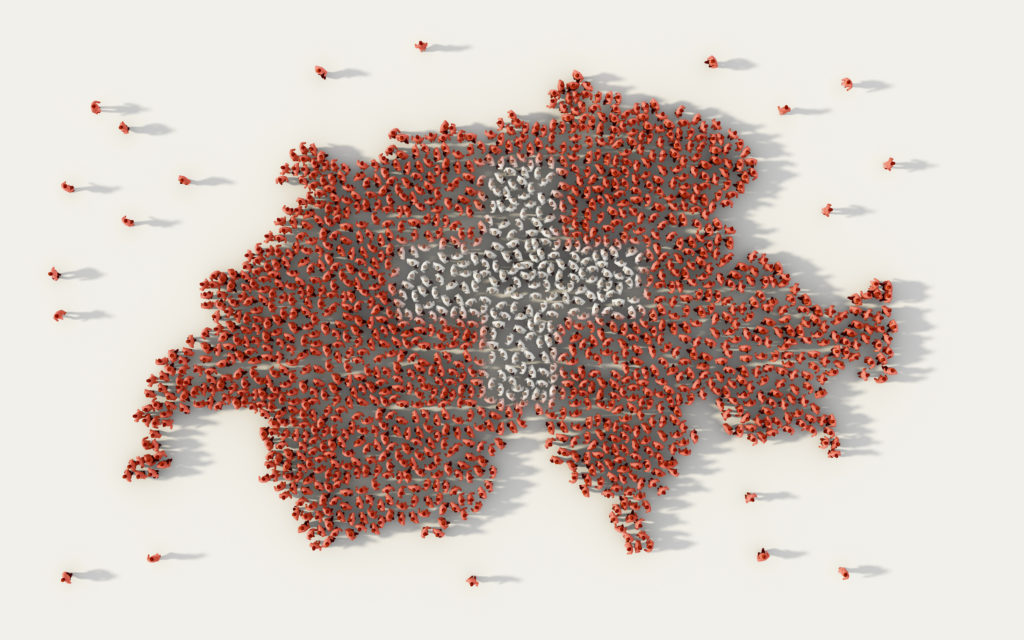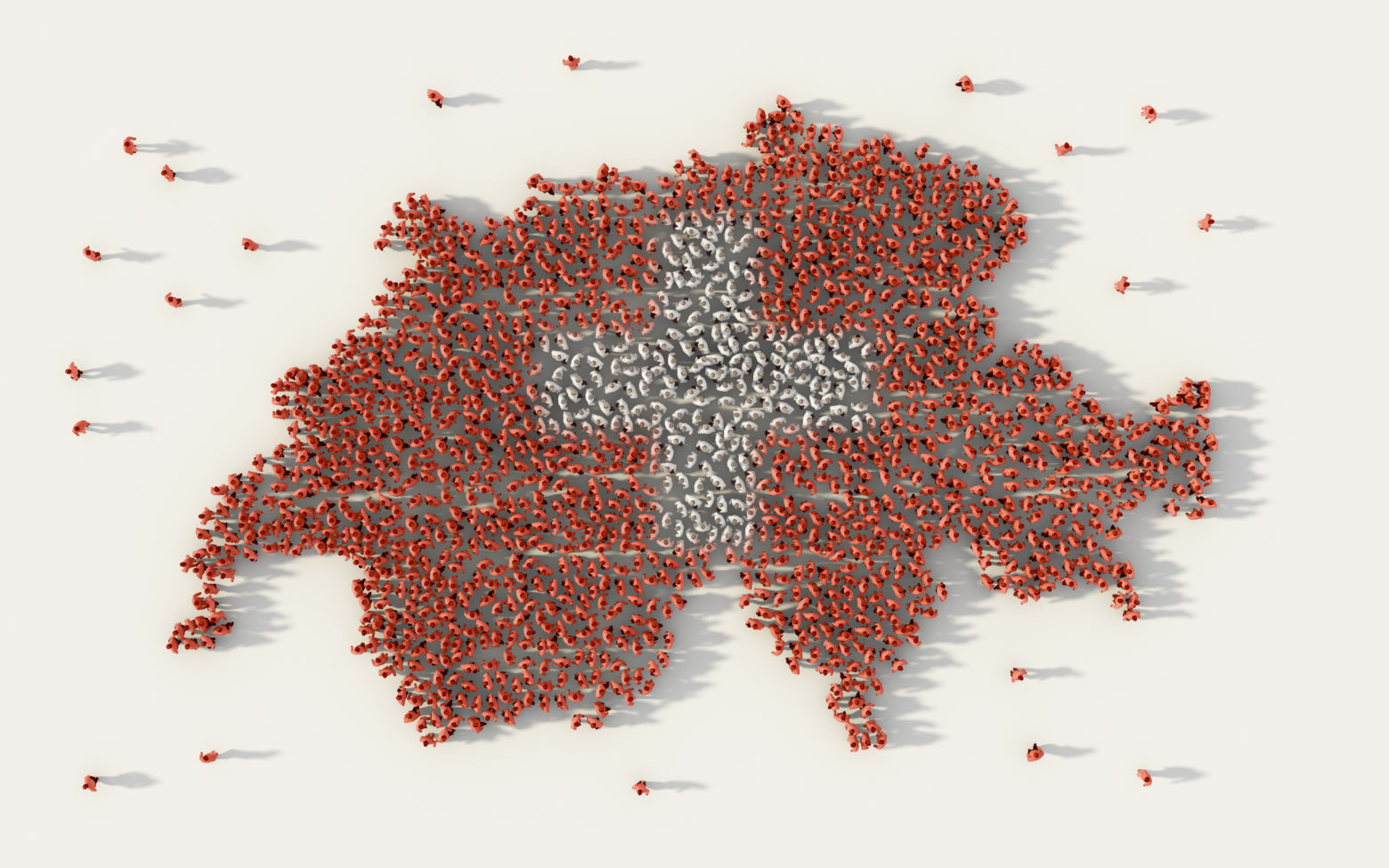Swiss German is a group of dialects that comes from the German language, and is spoken by about 5 million people in Switzerland. Like High German and English, Swiss German uses a variety of verb tenses to convey different meanings in different contexts. However, there are significant differences in how verb tenses are used in Swiss German compared to High German and English. In this blog post, we will explore the use of verb tenses in Swiss German and compare it to High German and English.
Present Tense
The present tense in Swiss German is similar to that in High German and English. It is used to describe actions that are happening now or habits that are ongoing. For example, “Ich spiele Fussball” (I play soccer) is a sentence in the present tense in Swiss German. Similarly, “Ich spiele Fussball” in High German and “I play soccer” in English are also present tense sentences.
However, Swiss German often uses the present tense to describe future events, while High German and English use the future tense for this purpose. For example, “Morn goht’s a d’Wäuterkante” (Tomorrow we’re going to the water park) in Swiss German versus “Morgen werden wir zum Wasserpark gehen” (Tomorrow we will go to the water park) in High German and “Tomorrow we’re going to the water park” in English.
Past Tense
As mentioned earlier, Swiss German rarely uses the simple past tense that is common in High German and English. Instead, it relies heavily on the present perfect tense to describe past events. The present perfect tense is formed by using the auxiliary verb “haben” (to have) or “sein” (to be) and the past participle of the verb. For example, “Ich ha gsunge” (I have sung) or “Ich bi gange” (I have gone) are examples of present perfect tense sentences in Swiss German.
Swiss German speakers often use the present perfect tense to describe completed actions in the past, ongoing or habitual actions that started in the past and continue to the present, and recent events that happened just a few minutes or hours ago. For example, “Ich ha grad äs Znüni gässe” (I have just eaten a snack) and “Ich ha gläge” (I have been lying down) are both examples of present perfect tense sentences in Swiss German.
High German, on the other hand, uses both the simple past tense and present perfect tense to describe past events. The simple past tense is formed by adding the suffix “-te” or “-ten” to the verb stem. For example, “Ich ging” (I went) and “Ich sang” (I sang) are simple past tense sentences in High German. Meanwhile, the present perfect tense in High German is formed the same way as in Swiss German, by using the auxiliary verb “haben” or “sein” and the past participle of the verb.
English also has both simple past tense and present perfect tense to describe past events. The simple past tense is formed by adding “-ed” to the verb stem, while the present perfect tense is formed by using the auxiliary verb “have” or “has” and the past participle of the verb. For example, “I walked” (simple past tense) and “I have walked” (present perfect tense).

Future Tense
Swiss German does not have a separate future tense, as it uses the present tense or present perfect tense to describe future events, as mentioned earlier. However, some dialects of Swiss German do have a future tense that is formed by adding the word “werde” (will) before the verb. For example, “Ich werde cho” (I will come) is an example of the future tense in some dialects of Swiss German.
High German and English both have a separate future tense that is used to describe future events. In High German, the future tense is formed by adding the auxiliary verb “werden” (will) before the verb. For example, “Ich werde spielen” (I will play) is a sentence in the future tense in High German. In English, the future tense is formed by using the auxiliary verb “will” or “shall” before the verb. For example, “I will play soccer” is a sentence in the future tense in English.
Conditional Mood
Swiss German, like German, uses the conditional mood to express hypothetical or uncertain situations, but it differs from English in its construction. In Swiss German, the conditional mood is formed by adding the modal verb “würde” (would) to the infinitive form of the main verb. This is similar to the German conditional mood, which also uses “würde” (or “würde” alternative forms) in the same way.
For example, in Swiss German, “I would buy a car” would be “Ich würd en Auto chaufe”, where “würd” is the conditional form of “werde” (would become) and “chaufe” is the infinitive form of “kaufe” (buy). In German, it would be “Ich würde ein Auto kaufen”, with “würde” as the conditional form of “werden” (to become) and “kaufen” as the infinitive form of “kaufen” (to buy).
In English, the conditional mood is formed by using “would” or “could” as an auxiliary verb followed by the base form of the main verb. For example, “I would buy a car” in English would be the same as in Swiss German, but the word order and the use of the auxiliary verb is different: “I would buy a car”.
Overall, the use of conditional mood in Swiss German is similar to that of German, but differs from English in terms of construction and word order.
Example Sentences
To revise and illustrate further, let’s take a look at the following sentences:
Present Tense
- I schaffe hüt vo dehouz us. (I work from home today.)
- Du gosch jede Morge jogge. (You go jogging every morning.)
- Är trinkt gärn Kafi. (He likes to drink coffee.)
- Mir lehre Dütsch in de Schuel. (We learn German in school.)
Conditional Mode
- Wenn i meh Ziit hätt, würd i es Buech läse. (If I had more time, I would read a book.)
- Du würsch besser schlofe, wenn du früener is Bett gösch. (You would sleep better if you went to bed earlier.)
- Är würd gärn reise, wenn är das Gält hätt. (He would like to travel if he had the money.)
- Mir würd hüt Obig i’s Kino gah, wenn mir Ziit hätten. (We would go to the cinema tonight if we had time.)
Present Perfect
- I ha hüt Morge gfrüschtückt. (I have had breakfast this morning.)
- Du bisch gester spöter hei cho. (You came home late yesterday.)
- Är het sini Arbet vor emene Monet verlore. (He lost his job a month ago.)
- Mir händ letsch Wuche es neus Auto kauft. (We bought a new car last week.)
In conclusion, the use of verb tenses in Swiss German differs significantly from that in High German and English. Swiss German does not use the simple past tense but rather the present perfect. The future tense is also ‘replaced’ by the present and present perfect tenses. This is mainly due to the fact that Swiss German is a spoken language, which eliminates plenty of the grammatical rules we often learn for traditional ones.
